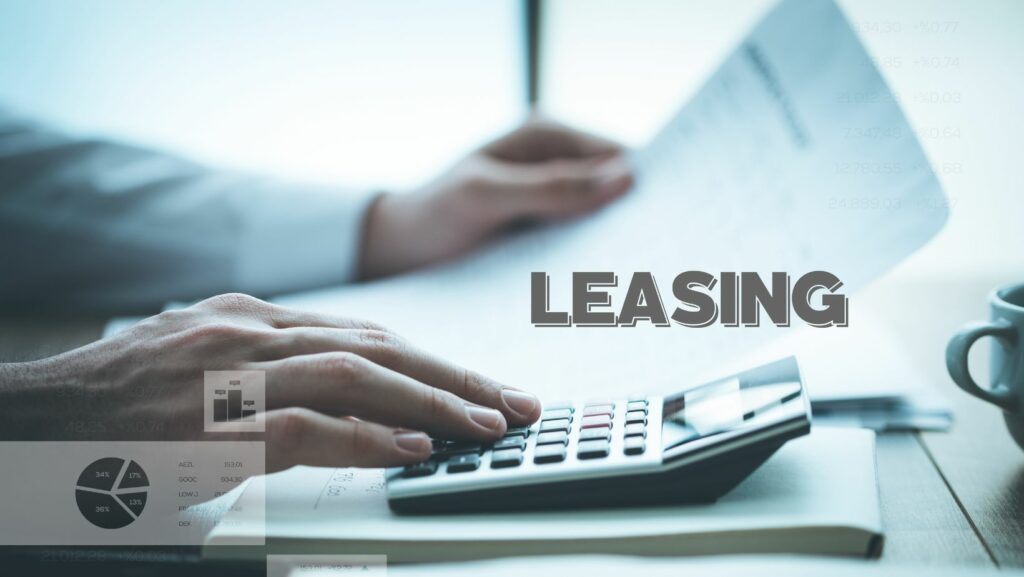Exploring the world of finance can often feel like navigating through a complex maze of terms and concepts. One such term that frequently arises in the realm of business and asset management is the finance lease. Understanding what a finance lease entails is crucial for companies looking to acquire assets without the full burden of ownership. In essence, a finance lease allows businesses to use an asset over a fixed period, mirroring the benefits of ownership without the full capital outlay upfront.
What is a Finance Lease
Finance leases are a type of lease agreement allowing businesses to use assets over a fixed period without owning them outright. With finance leases, companies can access equipment or property without the full financial burden of ownership, making it an attractive option to conserve working capital. These leases are crucial for businesses aiming to optimize their financial resources for operational needs while still benefiting from asset utilization.
 Finance leases offer companies the flexibility to use assets in exchange for regular lease payments over the lease term. Unlike operating leases, finance leases often transfer ownership rights to the lessee at the end of the lease period. This characteristic distinguishes finance leases as a financing arrangement rather than a rental agreement, providing companies with a practical way to acquire essential assets without significant upfront costs.
Finance leases offer companies the flexibility to use assets in exchange for regular lease payments over the lease term. Unlike operating leases, finance leases often transfer ownership rights to the lessee at the end of the lease period. This characteristic distinguishes finance leases as a financing arrangement rather than a rental agreement, providing companies with a practical way to acquire essential assets without significant upfront costs.
How Finance Leases Differ From Operating Leases
Finance leases differ significantly from operating leases in terms of ownership, accounting treatment, and risk and reward considerations.
Finance leases typically involve transferring the risks and rewards incidental to ownership of the leased asset to the lessee. This means that at the end of the lease term, the lessee usually has the option to purchase the asset at a bargain price, reflecting its expected residual value.
 Unlike operating leases where lease payments are considered as operating expenses, finance leases are treated as both an asset and a liability on the lessee’s balance sheet. This impacts key financial ratios and the overall financial position of the lessee.
Unlike operating leases where lease payments are considered as operating expenses, finance leases are treated as both an asset and a liability on the lessee’s balance sheet. This impacts key financial ratios and the overall financial position of the lessee.
In a finance lease, the lessee bears the risks associated with the asset, including any potential future fluctuations in its value. The lessee also benefits from any potential upside that may arise from ownership of the asset during the lease term.
Understanding these distinctions is crucial for businesses to make informed decisions when selecting between finance and operating leases based on their specific financial goals, accounting preferences, and risk management strategies.
Common Uses of Finance Leases
Finance leases are commonly utilized by businesses across various industries for different purposes. Here are some common applications of finance leases:
Acquiring High-Value Assets: Companies opt for finance leases to procure high-value assets such as machinery, equipment, vehicles, or technology infrastructure to support their operations without draining immediate capital reserves.
Technology Upgrades: Businesses leverage finance leases to regularly upgrade their technological systems like computers, servers, or software to stay competitive in the digital landscape and enhance operational efficiency.
 Expanding Production Capacity: Finance leases enable businesses to expand their production capacity by leasing additional equipment or machinery to meet increasing demand without substantial upfront investments.
Expanding Production Capacity: Finance leases enable businesses to expand their production capacity by leasing additional equipment or machinery to meet increasing demand without substantial upfront investments.
Managing Cash Flow: Utilizing finance leases allows companies to manage cash flow effectively by spreading the cost of asset acquisition over time, providing budget predictability and ensuring liquidity for other operational needs.
Navigating Obsolescence: In rapidly evolving industries, finance leases help businesses navigate technological obsolescence by facilitating regular upgrades or replacements of outdated equipment to maintain competitiveness.
Evolving Market Demands: By using finance leases, companies can quickly adapt to changing market demands by acquiring or upgrading assets as needed, enabling flexibility in responding to industry trends and consumer preferences.
Optimizing Tax Benefits: Finance leases offer businesses the opportunity to optimize tax benefits through deductible lease payments and potential tax advantages associated with leasing certain types of assets.
Enhancing Balance Sheet Management: With finance leases, companies can maintain a healthy balance sheet by structuring lease agreements as off-balance sheet financing, thereby improving financial ratios and enhancing creditworthiness.
Incorporating finance leases into their strategic planning allows businesses to access essential assets, manage financial resources efficiently, and adapt to dynamic market conditions.

